Discover The Indicator from Planet Money
The Indicator from Planet Money

The Indicator from Planet Money
Author: NPR
Subscribed: 62,675Played: 8,655,714Subscribe
Share
© Copyright 2015-2021 NPR - For Personal Use Only
Description
A bite-sized show about big ideas. From the people who make Planet Money, The Indicator helps you make sense of what's happening in today's economy. It's a quick hit of insight into money, work, and business. Monday through Friday, in 10 minutes or less.
1764 Episodes
Reverse
President Trump claims Venezuela stole American oil. Is that true? We trace Venezuela's oil industry from its 1920s birth through nationalization and then collapse. Today on the show, how did the Venezuelan oil industry get to a point where it’s barely pulling from its reserves? And will anything change now? Related episodes: Venezuela’s economic descent (Updated) Venezuela’s recent economic history (Update) Why oil in Guyana could be a curse For sponsor-free episodes of The Indicator from Planet Money, subscribe to Planet Money+ via Apple Podcasts or at plus.npr.org. Fact-checking by Julia Ritchey. Music by Drop Electric. Find us: TikTok, Instagram, Facebook, Newsletter. Learn more about sponsor message choices: podcastchoices.com/adchoicesNPR Privacy Policy
When you're in a grocery store nowadays, chances are your data is being collected. From a swipe of the loyalty card to the purchase of an ice cream pint, your data tells stores what you like, how much they should stock, and more. But what if that data meant a grocer could charge you a different price than another shopper?On today's show, the evolving price tag. Related episodes:Should 'surveillance pricing' be banned? How Grocery Shelves Get Stacked How niche brands got into your local supermarketFor sponsor-free episodes of The Indicator from Planet Money, subscribe to Planet Money+ via Apple Podcasts or at plus.npr.org. Fact-checking by Sierra Juarez. Music by Drop Electric. Find us: TikTok, Instagram, Facebook, Newsletter. Learn more about sponsor message choices: podcastchoices.com/adchoicesNPR Privacy Policy
Former Venezuelan leader, Nicolás Maduro, appeared in a New York court yesterday. He’s facing drug-trafficking and weapons charges after the U.S. abducted him and his wife in an explosive operation over the weekend. But is there any credibility to the drug-trafficking accusations? And what does the cocaine supply chain look like in 2026?Today on the show, tracing cocaine’s journey from the Andes to the streets of U.S. cities.Further reading: Ioan Grillo – El NarcoRelated episodes: Venezuela’s economic descent (Updated)Why Are Venezuelans Starving?Lessons from a former drug dealerFor sponsor-free episodes of The Indicator from Planet Money, subscribe to Planet Money+ via Apple Podcasts or at plus.npr.org. Fact-checking by Cooper Katz McKim and Sierra Juarez. Music by Drop Electric. Find us: TikTok, Instagram, Facebook, Newsletter.Learn more about sponsor message choices: podcastchoices.com/adchoicesNPR Privacy Policy
Japan’s new prime minister Sanae Takaichi made waves last fall after saying her country might intervene if China invaded Taiwan. In response, China launched state-organized boycotts against Japan — canceling concerts, restricting seafood imports, and even recalling pandas. Today on the show, what does it look like for a state to organize a boycott, and does it work? Related episodes: How Japan’s new prime minister is jolting marketsWhen do boycotts work? Forging Taiwan's Silicon Shield For sponsor-free episodes of The Indicator from Planet Money, subscribe to Planet Money+ via Apple Podcasts or at plus.npr.org. Fact-checking by Sierra Juarez. Music by Drop Electric. Find us: TikTok, Instagram, Facebook, Newsletter. Learn more about sponsor message choices: podcastchoices.com/adchoicesNPR Privacy Policy
At The Indicator, we’ve been following the conditions in Venezuela over the years. In 2024 we covered how Venezuela’s economy went into freefall, and have been checking in with an economist there frequently — including after the U.S. attacked over the weekend, deposing its leader Nicolás Maduro. On today’s show, we’re revisiting our episode about Venezuela’s economy, and hear from our contact in Caracas. Send us questions you’d like The Indicator to answer on future episodes about Venezuela: indicator@npr.org. Related episodes: The Measure of a Tragedy Why are Venezuelans starving? An Economist in Caracas: Day In The Life For sponsor-free episodes of The Indicator from Planet Money, subscribe to Planet Money+ via Apple Podcasts or at plus.npr.org. Music by Drop Electric. Find us: TikTok, Instagram, Facebook, Newsletter. Learn more about sponsor message choices: podcastchoices.com/adchoicesNPR Privacy Policy
2025 is finally over. We had bad consumer sentiment vibes, tariffs, and a seemingly ascendant stock market. And those are just a few indicators from last year! As we enter 2026, what indicators should we keep an eye on … in the future? On today’s episode, our top indicator predictions for the new year.Related: What AI data centers are doing to your electric bill Tariffs. Consumer sentiment. Cape ratio. Pick the Indicator of the Year! What indicators will 2025 bring? For sponsor-free episodes of The Indicator from Planet Money, subscribe to Planet Money+ via Apple Podcasts or at plus.npr.org. Fact-checking by Sierra Juarez. Music by Drop Electric. Find us: TikTok, Instagram, Facebook, Newsletter. Learn more about sponsor message choices: podcastchoices.com/adchoicesNPR Privacy Policy
Americans are moving at record lows for work. What’s driving people to, well, not drive cross-country for jobs? On today’s episode, we explore the rising homebody economy. This episode originally aired Oct. 3, 2025. Related episodes: Why moms are leaving their paid jobs How the end of Roe is reshaping the medical workforce For sponsor-free episodes of The Indicator from Planet Money, subscribe to Planet Money+ via Apple Podcasts or at plus.npr.org. Fact-checking by Corey Bridges. Music by Drop Electric. Find us: TikTok, Instagram, Facebook, Newsletter. Learn more about sponsor message choices: podcastchoices.com/adchoicesNPR Privacy Policy
To hear President Trump tell it, the late 1800s, i.e. the Gilded Age, were a period of unparalleled wealth and prosperity in the U.S. But this era was also marked by corruption and wealth inequality. Sound familiar? On today's show, is history repeating itself?This episode originally aired June 5, 2025. Related: Trump's tariff role model For sponsor-free episodes of The Indicator from Planet Money, subscribe to Planet Money+ via Apple Podcasts or at plus.npr.org. Fact-checking by Sierra Juarez. Music by Drop Electric. Find us: TikTok, Instagram, Facebook, Newsletter. Learn more about sponsor message choices: podcastchoices.com/adchoicesNPR Privacy Policy
Seasons greetings from the The Indicator! On today's show, the story of a man who started buying and selling stocks as a hobby — and got seriously addicted. We also speak with a neuroeconomist about the human brain on day trading. This piece originally aired Jan. 25, 2025. Related episodes: The young trolls of Wall Street are growing up Invest like a Congress member For sponsor-free episodes of The Indicator from Planet Money, subscribe to Planet Money+ via Apple Podcasts or at plus.npr.org. Fact-checking by Sierra Juarez. Music by Drop Electric. Find us: TikTok, Instagram, Facebook, Newsletter. Learn more about sponsor message choices: podcastchoices.com/adchoicesNPR Privacy Policy
Many men in the U.S. feel like they're not doing as well as their fathers. But what does the data say? This episode, we're sharing an extended conversation between Darian Woods and Richard Reeves, the president of the American Institute for Boys and Men. They discuss what's really going on with men's wages. Richard also argues economic and cultural changes are needed to address the struggles unique to working-class men.This interview was included in one of our bonus episodes for NPR+ supporters. Today we're sharing it with everyone. Learn more about NPR+ and sign up at plus.npr.org. Find us: TikTok, Instagram, Facebook, Newsletter. Learn more about sponsor message choices: podcastchoices.com/adchoicesNPR Privacy Policy
For the next week, we're running some of our favorite shows from this year. On today's show, a brief history of Nintendo and how a small playing card company in Japan became a gaming juggernaut. This piece originally aired June 16, 2025.Related episodes: Inside video game economics Forever games: the economics of the live service model The boom and bust of esports For sponsor-free episodes of The Indicator from Planet Money, subscribe to Planet Money+ via Apple Podcasts or at plus.npr.org. Fact-checking by Sierra Juarez. Music by Drop Electric. Find us: TikTok, Instagram, Facebook, Newsletter. Learn more about sponsor message choices: podcastchoices.com/adchoicesNPR Privacy Policy
Happy Holidays from The Indicator! For the next week, we're running some of our favorite shows from this year. On today's show, why celebrities are increasingly investing in their own brands.This piece originally aired August 14, 2025.Related episodes:The celebrity crypto nexusThe Olympian to influencer pipeline (Apple / Spotify)For sponsor-free episodes of The Indicator from Planet Money, subscribe to Planet Money+ via Apple Podcasts or at plus.npr.org. Fact-checking by Sierra Juarez. Music by Drop Electric. Find us: TikTok, Instagram, Facebook, Newsletter.Learn more about sponsor message choices: podcastchoices.com/adchoicesNPR Privacy Policy
As Warren Buffett aged, he became a different sort of figure. He transformed from short-term investor into long-term builder. He used Berkshire Hathaway to start buying companies and build an empire. Today on the show, how did Buffett’s fame become an investment tool and how did he handle the biggest crisis of his career? Related episodes: Planet Money Summer School 2: Index Funds & The BetBrilliant vs. Boring For sponsor-free episodes of The Indicator from Planet Money, subscribe to Planet Money+ via Apple Podcasts or at plus.npr.org. Fact-checking by Sierra Juarez. Music by Drop Electric. Find us: TikTok, Instagram, Facebook, Newsletter. Learn more about sponsor message choices: podcastchoices.com/adchoicesNPR Privacy Policy
With an unprecedented decades-long run of success, Warren Buffett is retiring on December 31, 2025. Buffett’s turning point began with the acquisition of a failing textile mill called Berkshire Hathaway. What began as a “terrible mistake” became the foundation for his empire. Today on the show, how did Buffett become this legendary figure? Related episodes: Planet Money Summer School 2: Index Funds & The BetBrilliant vs. Boring For sponsor-free episodes of The Indicator from Planet Money, subscribe to Planet Money+ via Apple Podcasts or at plus.npr.org. Fact-checking by Sierra Juarez. Music by Drop Electric. Find us: TikTok, Instagram, Facebook, Newsletter. Learn more about sponsor message choices: podcastchoices.com/adchoicesNPR Privacy Policy
2025 was a wild year for the U.S. economy. Tariffs transformed the global economy, consumer sentiment hit near-historic lows, and the stock market hit scary, spooky, blood-curdling new heights! So … which of these economic stories defined the year? Our hosts from Planet Money and The Indicator duke it out during our annual … Family Feud!Tell us who you think has THE indicator of the year by emailing us at indicator@npr.org. Put “Family Feud” in the subject line. Related episodes:The Indicators of this year and next This indicator hasn’t flashed this red since the dot-com bubble What would it mean to actually refund the tariffs?For sponsor-free episodes of The Indicator from Planet Money, subscribe to Planet Money+ via Apple Podcasts or at plus.npr.org. Fact-checking by Corey Bridges. Music by Drop Electric. Find us: TikTok, Instagram, Facebook, Newsletter. Learn more about sponsor message choices: podcastchoices.com/adchoicesNPR Privacy Policy
After a firehose of economic news in 2025, we wanted to check back on some of the people we’ve heard from on our show. Today, we check in with a former federal employee caught in the Trump administration's wood chipper, a Louisiana shrimper on Trump’s tariffs and an update on a financial aid scam. Related episodes: Why do shrimpers like tariffs? What’s the long-term cost of federal layoffs? A big bank’s mistake, explained For sponsor-free episodes of The Indicator from Planet Money, subscribe to Planet Money+ via Apple Podcasts or at plus.npr.org. Fact-checking by Sierra Juarez. Music by Drop Electric. Find us: TikTok, Instagram, Facebook, Newsletter. Learn more about sponsor message choices: podcastchoices.com/adchoicesNPR Privacy Policy
Absent a holiday miracle, premium subsidies for the Affordable Care Act are set to expire at the end of this year. This will greatly increase the cost of health insurance for many who rely on the marketplace for their coverage. Today on the show, we are visited by the ghosts of Obamacare past, present and future to learn what’s next for this landmark healthcare legislation.Related episodes: Is Obamacare doomed without extended subsidies?The hidden costs of healthcare churnHow doctors helped tank universal healthcareFor sponsor-free episodes of The Indicator from Planet Money, subscribe to Planet Money+ via Apple Podcasts or at plus.npr.org. Fact-checking by Sierra Juarez. Music by Drop Electric. Find us: TikTok, Instagram, Facebook, Newsletter. Learn more about sponsor message choices: podcastchoices.com/adchoicesNPR Privacy Policy
The One Big Beautiful Bill Act made a lot of changes to the federal student loan system. One of those changes put a new cap on the amount of loans students in graduate school can take on. Today on the show, we explain the theory behind this change and how it could impact the broader labor market going forward.Related episodes: The Market For Student LoansHere's why Black students are defaultingStudent loans are back, U.S. travel is whack, and AI — please, step backFor sponsor-free episodes of The Indicator from Planet Money, subscribe to Planet Money+ via Apple Podcasts or at plus.npr.org. Fact-checking by Sierra Juarez. Music by Drop Electric. Find us: TikTok, Instagram, Facebook, Newsletter. Learn more about sponsor message choices: podcastchoices.com/adchoicesNPR Privacy Policy
Cities like Austin and Atlanta used to top lists of places people moved to looking for relatively affordable places to live. Until, one day, they weren’t that affordable. On today’s show, how a low cost of living is threatened by growth, and how one sunbelt city in Alabama is planning ahead. Related episodes: Why Americans don’t want to move for jobs anymore How to build abundantly How big is the US housing shortage? The highs and lows of US rents For sponsor-free episodes of The Indicator from Planet Money, subscribe to Planet Money+ via Apple Podcasts or at plus.npr.org. Fact-checking by Sierra Juarez. Music by Drop Electric. Find us: TikTok, Instagram, Facebook, Newsletter. Learn more about sponsor message choices: podcastchoices.com/adchoicesNPR Privacy Policy
It’s … Indicators of the Week! Our weekly look at some of the most fascinating economic numbers from the news. On today’s episode: Nvidia chips OK’d for China, a sticky frozen Russian asset situation, and a lot of you seem to be stealing from self-checkout. Related episodes: The tower of NVIDIA How to get Russia to pay Ukraine Why the U.S. cut China off from advanced chipsFor sponsor-free episodes of The Indicator from Planet Money, subscribe to Planet Money+ via Apple Podcasts or at plus.npr.org. Fact-checking by Sierra Juarez and Corey Bridges. Music by Drop Electric. Find us: TikTok, Instagram, Facebook, Newsletter. Learn more about sponsor message choices: podcastchoices.com/adchoicesNPR Privacy Policy











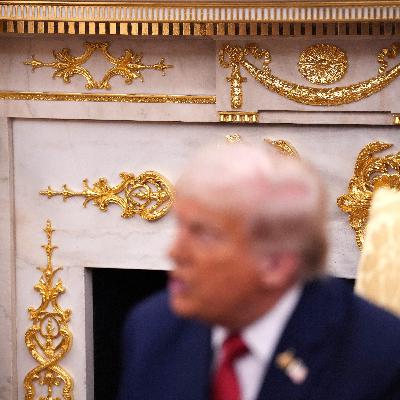

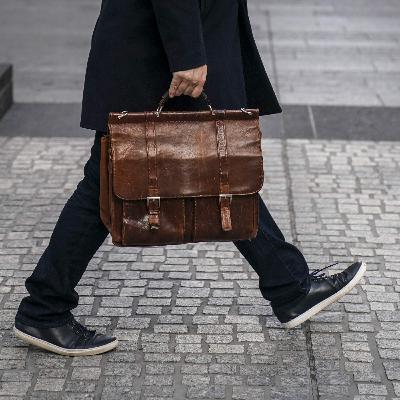




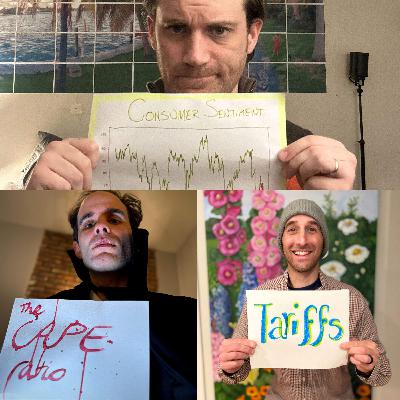
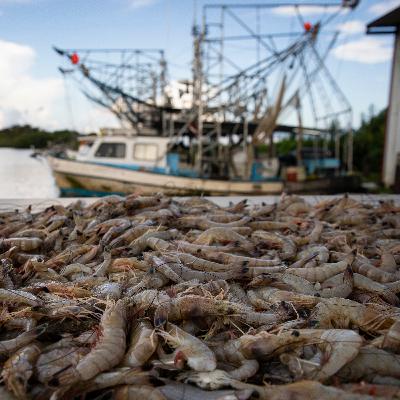
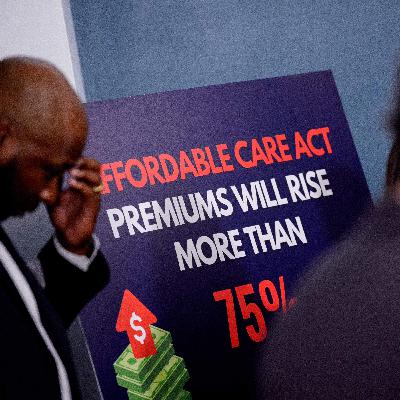
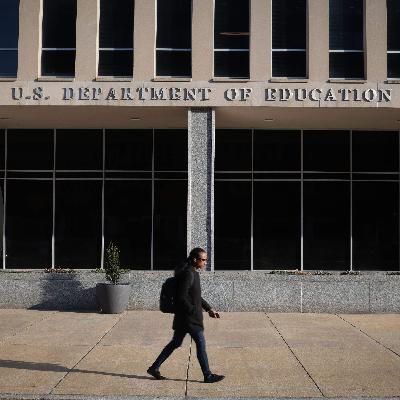

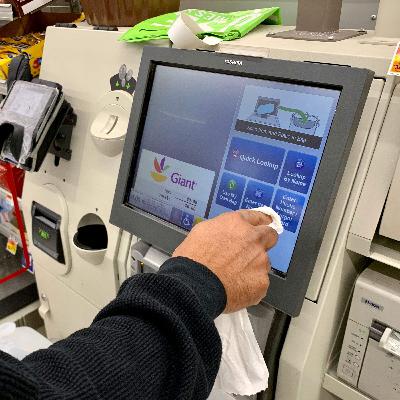



💡
As we know, the world becomes globally and there are huge ways of earning. Visit this website https://apkkit.net/ where you'll find plenty of options for easy earning from your phone.
🖼️
🐟
a bit too woke to be considered journalism
Hahaha they skirted around the elephant so much
Lots of data for comparison in this episode! Increased used car costs = ☹️. I love my current vehicle - as a model that is no longer produced, I hope it goes strong for more years on several levels! 🚗
"A guy who trusts his gut, knows very little, studies not at all, and is adverse to taking advice from almost everyone." 👀👀👀
9:28.. what is.she scared of? really!!?!?
please stop calling it liberation day. if we have to call it by a name then Doofus Day would be more accurate.
🚗
1. People have short attention span, and 2. Random acts of violence, while they do happen, are rare as a regular occurrence in the same tourist destination.
Very good points about why there aren't water pipelines across the entire country to easily funnel from water-rich locations. A good example of the benefits and challenges of having many small systems rather than a monopoly. ⛲
Video games have become more accessible than ever, thanks to advancements in technology, inclusive designs, and widespread internet connectivity. From mobile gaming apps to sophisticated console platforms, the industry caters to players of all ages and abilities. Accessibility features such as customizable controls, text-to-speech options, and visual aids ensure that gaming can be enjoyed by everyone, including those with disabilities. Moreover, websites like https://mtcheck.org/ provide valuable resources and insights for players, helping them make informed decisions about their gaming preferences and experiences. This evolution underscores the growing emphasis on inclusivity and the importance of bridging the gap for all types of gamers worldwide.
Cost transparency is important, and the funeral industry should do better. Similarly, reports are coming out this week of many hospitals that are failing to provide clear costs. Why can't we at least know the financial ramifications of literal life and death experiences?
Financial literacy - understanding both macro and micro processes - is rare, so teaching kids early will hopefully benefit those individuals and eventually the communities where they live.
Who is clamoring for Fire Festival 2? 🤨
Good for FIU and Pitbull- hope he gets to do something extra fun with his 10 days/year!
Malcolm Gladwell wrote about the advantages of being the older individuals in a cohort and how they are often more successful. Even so, "reclassing" is an interesting rebrand of "being held back" and if the ONLY reason it's happening is to give a false athletic advantage that seems really short-sighted.
More than 10 minutes into an 11 minute. podcasts we finally get to "in other studies the results are mixed." indeed.